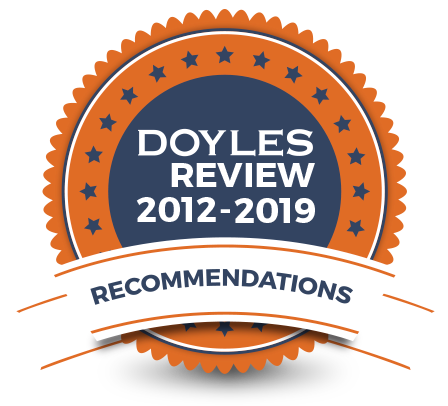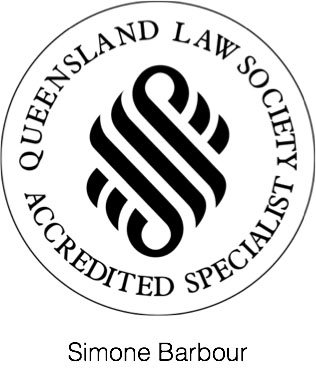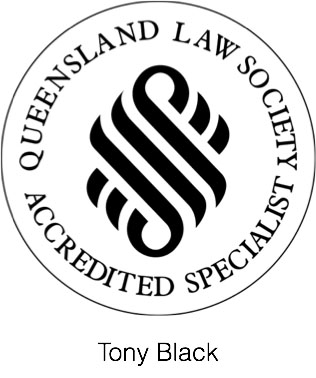
Planning for Separation
Invariably, separation is a traumatic experience and with little doubt, one of life’s most stressful events. Being a highly-charged emotional event, it can become so easy for people to be overwhelmed in all the emotion that can cloud a person’s ability to consider fundamental practical and legal issues that are significant, long-lasting and wide-reaching.
Accordingly, seeking legal advice early in the process is very important.
Frequently Asked Questions
Can either party withdraw money from a joint account?
You and the other party can continue to use a joint account to pay joint bills or other agreed expenses. Ideally you should agree upon the expenses that can be paid from this account.
There is no urgent need to change your usual banking arrangements unless you are concerned that the other party is going to withdraw the funds or not make funds available to meet your family’s financial needs.
You don’t want to have a situation where there is no trust between you with the risk that the other party may withdraw the funds without your consent or a clear plan for how those funds will be used pending a full settlement.
Can we just make the account two to sign to prevent funds from being withdrawn?
If you make this account two to sign, then you will need to agree on all future releases of funds. This may result in delays and inconvenience so we recommend attempting to be clear about your future intentions before you or the other party make changes to your banking arrangements.
We do not recommend withdrawing lump sum funds without taking legal advice before you make the decision to do so. Any money that you or the other party withdraw may form part of the matrimonial property and any lump sum funds accessed will have to be accounted for.
However, you may need to consider accessing lump sum funds to assist with legal fees and we can provide you with specific advice about this option. However we need to consider your personal financial circumstances before we can advise you.
We recommend that if you have any concerns about joint funds being released without your consent you consult a solicitor urgently. You may need to take urgent steps to protect and preserve these funds.
What if I move out of the family home, can I take the furniture?
Your furniture and household contents represent an asset that is taken into account in the final property settlement distribution.
Therefore the value of any furniture and household contents that you remove will need to be taken into account.
Ideally you should take photographs of the existing contents and prepare a list of all items and a list of how you propose to distribute them.
Once this list has been prepared we recommend that you attempt to reach agreement with the other party about the items you each wish to retain taking into account items of sentimental significance to each other.
If you cannot reach an agreement we recommend you consult a solicitor before you remove any items from your home.
Can I sell my car or other assets in my name without the other party’s consent?
You should not dispose of or sell any items that you own at the time of the relationship breakdown in the absence of an agreement. If this is unavoidable then:
- You should not sell an asset you know the other person wants to retain in the final settlement. If you believe they cannot afford to retain it, take legal advice before you act;
- If a sale is unavoidable AND the other party does NOT want to retain the asset, then any sale should be based on fair market value; and
Any funds you receive will need to be clearly accounted for. This means you will need to keep financial records such as receipts, invoices and bank statements
Can I remove my personal belongings?
What are “personal belongings”?
These include your personal clothing, toiletries, cosmetics, pharmaceutical supplies and personal papers.
You may retain any jewellery that you have purchased or received as a gift prior to or during the relationship. While most parties reach an agreement about retaining items of personal significance if there is a dispute about any items where there is an intrinsic value, these items may need to be valued.
What items are not “personal belongings”?
Household furniture or contents (such as tools, artwork, silverware) are not personal belongings, even if you received them as a gift. However you can always recognise and agree with the other party when an item has sentimental value for that party to retain that item.
Family photos represent community property to which both parties will have an interest. This is unless they are photos of your family of origin (that is of you growing up as a child) or photos from prior to the relationship.
We can assist with suggestions about how to distribute family photos.
Applying for Centrelink Benefits
You may be entitled to certain Centrelink benefits including Sole Parents Payments or additional Family Tax Benefits and we recommend that you make enquiries about your potential entitlements with the Department of Human Services on 136 150.
https://www.humanservices.gov.au/customer/dhs/centrelink
What if I cannot obtain Centrelink benefits because of a Family Trust?
If your spouse distributes income to you through a Family Trust this may impact on your eligibility for Centrelink benefits.
If that is the case we may be able to assist you work through the Family Trust issues with a view of overcoming the obstacles this may present regarding eligibility for Government Benefits.
Applying for Child Support
If you have children together you may also be entitled to apply for Child Support.
If your spouse is providing you with financial support voluntarily you should take advice before contacting the Child Support Agency to decide if that is in your best interests.
If your spouse is not providing you with financial support voluntarily then we recommend you make enquiries about your potential entitlements to child support with the Department of Human Services – Child Support Agency on 131 272.
If you and your spouse would like to come to your own arrangements or you would like to know what amount of support you may be entitled to receive, you may wish to complete the online child support calculator which will provide you with an indicative amount, depending on your circumstances.
Do I have to pay Child Support?
If you have children together and you earn more than your spouse you may have to pay them an amount calculated by the Government (or as agreed between you) for Child Support.
If you and your spouse would like to come to your own arrangements or you would like to know what amount of support you may be entitled to receive, you may wish to complete the online child support calculator which will provide you with an indicative amount, depending on your circumstances.
We can provide you with assistance if you would like to reach your own agreement about Child Support.
https://processing.csa.gov.au/estimator/About.aspx
Coming to your own Child Support arrangements
You may be paying bills for the benefit of your children voluntarily (mortgage payments, rent, school expenses etc.). These payments may be able to reduce any child support you might otherwise be assessed to pay.
You can structure a child support agreement that can take into account payments to meet the specific needs of your children including school fees, school books, extra-curricular activities, private health insurance and medical expenses and any other expenses particular to your children.
We can assist you to structure an agreement if you and your spouse would prefer to reach your own arrangements to enable these contributions to be taken into account.
What time should the children spend with each parent?
Before you commit to any arrangement for the children you should seek legal advice. Any arrangements that are put in place may be difficult to change at a later date. Therefore it is important to try to reach agreement after careful consideration rather than being rushed into a generic outcome that other friends or family may have told you about. What works for another family may not work for your children and the Court takes into account the best interests of your children as the paramount consideration.
There are available options for you and your former partner to negotiate your own arrangements, please see our link specifically relating to negotiating parenting arrangements.
We can assist you with advice specific to your circumstances.
Can I stay in my home?
If you are a joint owner of the home, then you are entitled to remain in the home unless there is a Court Order or agreement otherwise.
If you intend to try to retain the home in the final property settlement it will be in your interest to remain in the home. However this can become an untenable situation for everyone if the negotiations become protracted or Court proceedings are commenced.
There may be other options or financial arrangements that need to be considered including the arrangements for renting elsewhere and we can provide you with advice about these options.
If there is domestic violence involved there are options available so that party responsible for the domestic violence may be required to move out of the home. This requires an application to Court. We can provide you with advice about this.
Who pays the mortgage?
If you are a one income family then the income earner will usually be expected to continue to pay the Mortgage and other household bills pending a final settlement. However, this may reduce any Child Support they would otherwise be expected to pay you.
We can provide you with specific advice to your circumstances.
It is very helpful if you can prepare a household Budget that clearly identifies your family expenses as this will help us determine the payments that may be required.
If you are both working then it is more complicated to resolve the obligations of each party to pay joint bills.
This will involve knowledge of:
- Your respective incomes;
- Your household expenses;
- Your anticipated living arrangements pending the settlement (under the same roof or separately)
We can provide you with guidance on these matters tailored to your circumstances. We recommend following a similar pattern of expenditure with respect to the arrangements before separation until you have time to fully consider your circumstances and take legal advice.



